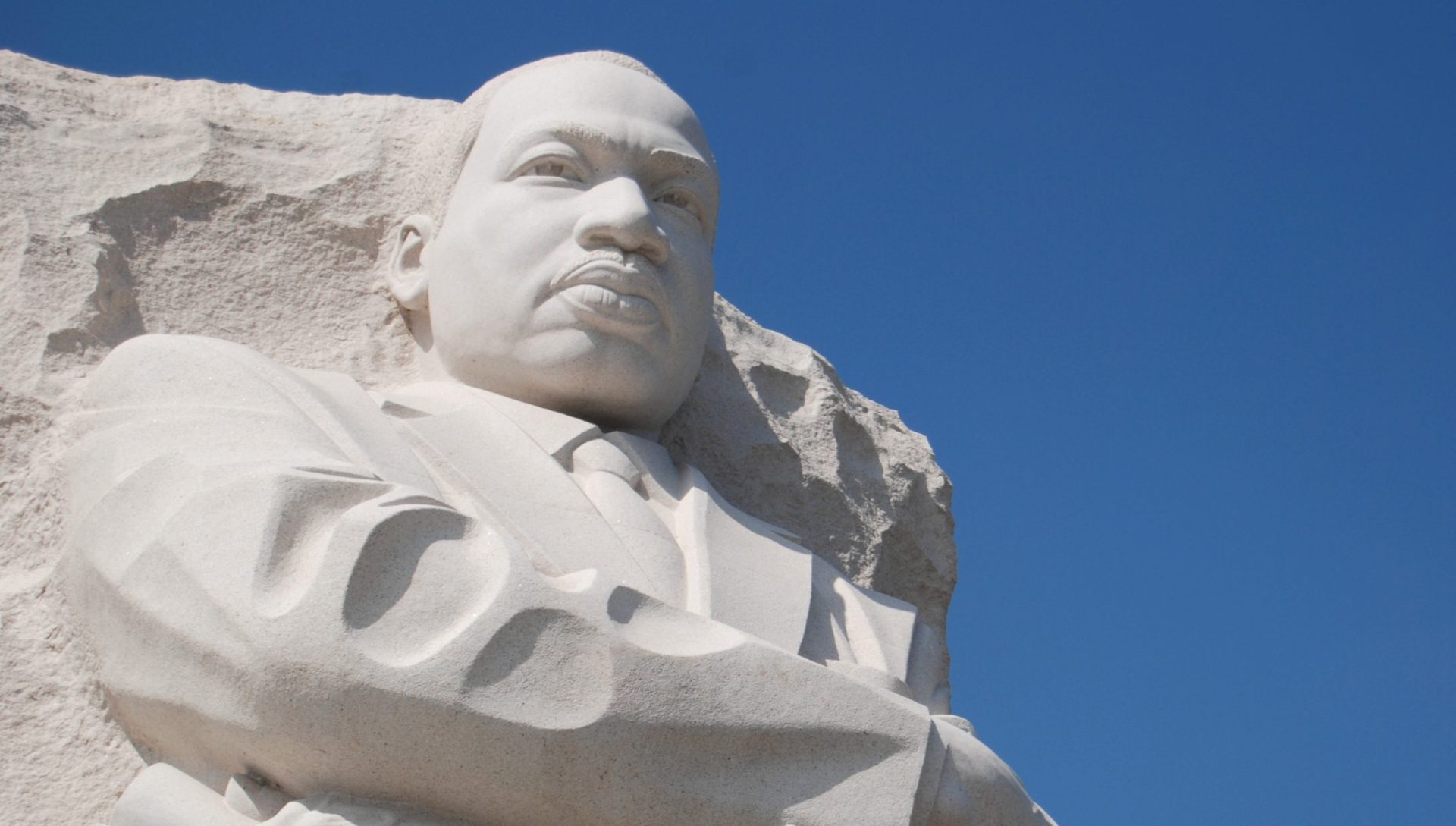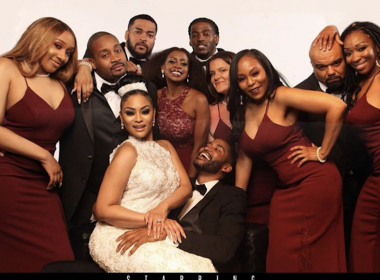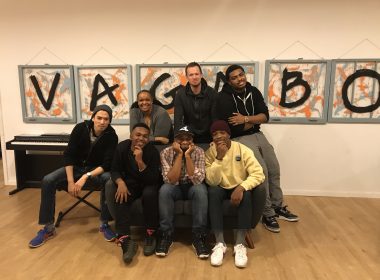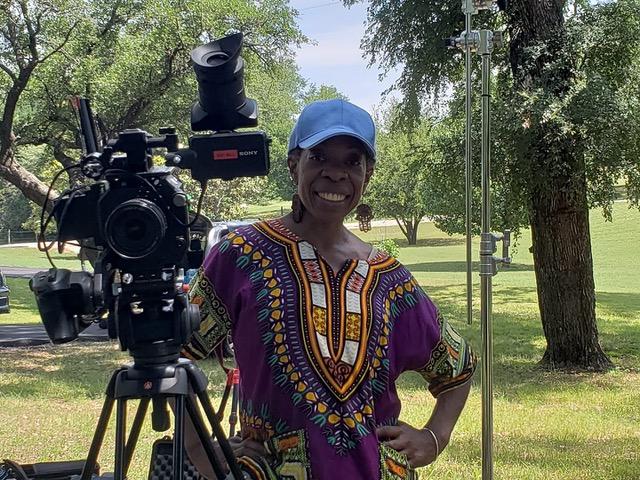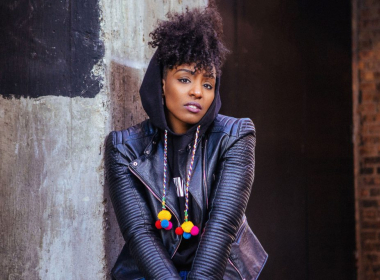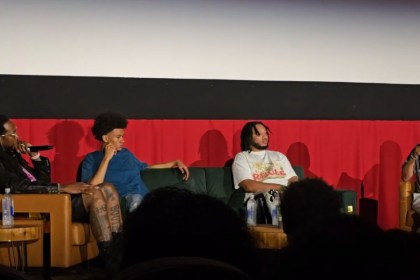
If you are a part of Kanye West’s cult-following fan base, then you recognize the name Che “Rhymefest” Smith. The underrated Chicago MC was credited back in 2004 for co-writing West’s Grammy-winning “Jesus Walks,” and later for the 2015 Oscar-winning song “Glory” from the motion picture Selma. Now, Rhymefest is the subject of Ricki Stern and Annie Sundberg’s film, In My Father’s House.
The documentary tells the story of his journey to restoring his personal relationship with his father in order build a better future for his family. Rhymefest feels that making the connection to his painful past will help him finally be at peace with the present.
Rolling out spoke with him to find out what initially made him reach out to his father, the challenges of having cameras follow his every move, and why he chose to document his story.
Why did you decide to produce In My Father’s House?
It first started with me wanting to find my father after buying the childhood home my father grew up in. Being in this home sparked a lot of feelings and emotions about this father that I never met. I wanted to know who I was. This house had an energy that made me feel uncomfortable. I went on this journey to find my father, but I would also say that any journey that we go on we should document it. Whether building audio or writing your thoughts down documentation is the proof that you existed in the world.
What made you want to share such a personal part of your life with other people?
I am an artist. As an artist, I have been sharing my story through rap music and through audio. Sharing your journey is a part of not only purifying yourself through putting your story out but it’s also a part of me asking my children for forgiveness and accepting me as a great father. It’s also a way to help others. Anyone who knows anything about Rhymefest knows I am on a mission to save the world one way or another. None of our stories are unique. We all have similar stories, but the only thing that can be unique is the way we deal with them.
Are there specific moments in your childhood where you look back and wish your father had been present?
I don’t know if I can remember exact moments, but I know what a responsible father could have helped me with after I made mistakes. Your parents are there to prevent you from making horrible mistakes and give you boundaries. As a child, I had no boundaries. I did what I wanted and went wherever I wanted to go whenever I felt like it. I wasn’t mature enough to say, man, I wish I had a dad in my life to make me go school instead of being a dropout.
What was the primary reason you reached out to your father?
For number one, moving into the home. Being there inspired a lot of feelings in me and led me on that journey. I felt like the house was haunted and I knew the only way to bless the house was with my father’s presence. He told me that he was tortured and abused in that house, so I knew it would provide healing for him too.

How did your father react when you found him?
My father was an alcoholic. My father was happy to be reconnected with some semblance of a family. He had no one and I don’t even know if his emotion was genuine. My father thought I was rich. He was in such a desperate place. You don’t just love your child because that’s your child. That is crap to me. All relationships have to be developed and have to be nurtured.
What was the most challenging part of filming the documentary?
I would say letting cameras be in my life 24/7. I have never been invaded within the community that I work and live in. Also, having the cameras capture emotional moments and not knowing how it will be edited along with realizing everyone is going to eventually see it. I believe there is strength in vulnerability. I believe we need to show that more in black culture. We have a lot of issues as a people and it is not going to be shown by acting tough.
Unlike a large percentage of Black men, you had the chance to find your father. What do you feel they can do to heal and move on with their lives?
I had the privilege of having a successful, artistic career that gave me an opportunity to go back and meet my father. It goes back to opportunity and how much of that do young Black men have. I am really blessed. It starts with policy, education, and community organizing. Black families are at war. We need a holistic village resolution.
What do you desire to give to your children that your father couldn’t give you?
I hope that I can give my family the gift of legacy and history. Knowing who I am will help them know who they are. I always ask people if they would rather have an abusive parent or no parent at all. My story played out well for who I am and what I do. If my father had been around as an alcoholic when I was a child I might be one today. I had an opportunity to write my own story and go back and get my father. I hope to give them the gift of my example and help them to have a lane of their own.
What have you learned about yourself on the journey to finding your father?
I always thought I had to be hard and tough. I realized from my father that the things I was fighting to be within myself were opposite of who I was. My father is passionate. He didn’t survive living in the streets of Chicago with his fists he survived with cleverness and compassion. These are the attributes I have from my father. Had I not found him I wouldn’t have discovered who I was. I am comfortable with who I am now.
When people watch your film, what do you hope they will learn from seeing your personal story?
No one’s story is unique and that people see themselves, their lives and their families. I hope my story helps to provide a solution for whatever they are going through. I want people to take away a piece of themselves. People need to stop being so judgmental, especially in the Black community.


